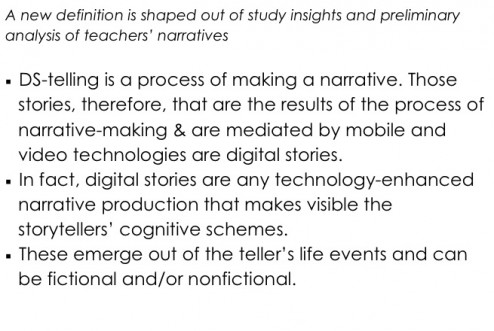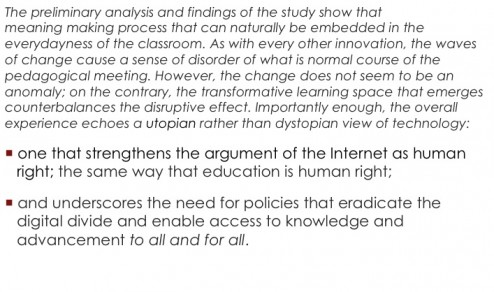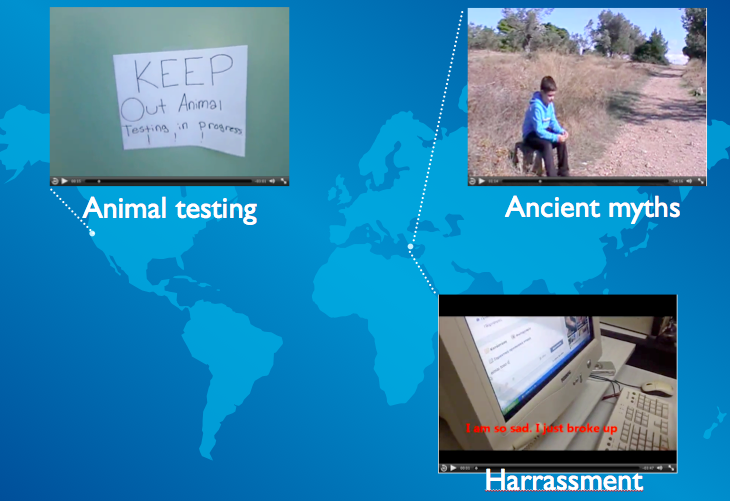What does digital storytelling mean for teaching and learning? Is it another disruptive ephemeral technological fad? Or does it signal a new everydayness in schools?
These are themes that our ongoing study on the digital storytelling experience tackles with. In the study we aim to unlock teachers’ meanings of the integration of the digital in the pedagogical meeting across countries. To do so, we look into the stories resulting from semi-structured interviews of teachers and analyze emergent themes within a phenomenological standpoint.
Preliminary findings were presented 17.05.2013 at the Teacher Education and Policies in Education International conference, hosted at the University of Helsinki.






